Obviously, as a Literature major I have a great
deal of interest in -- well, Literature. To explain why a bit more
fully, click the above link to read a passage from Literature: An Introduction to
Reading and Writing, Second Edition, Edgar V. Roberts and Henry E. Jacobs,
editors.
/books.jpg)
In any case,
the following are a few thoughts on books I've read...some recently, some
not so. And, if there are any thoughts you'd like to add regarding
these works, or suggestions for others that might be included here, please
feel free to e-mail me directly
or post them on the Share The Insanity
discussion board.
The
Da Vinci Code by Dan Brown
/da%20vinci%20code.jpeg) First, I can't help noting I find it an interesting commentary on American
society that within a one year period The Da Vinci Code and The
Passion of the Christ should top the sales charts in books and films
respectively...given the fact, of course, that these purport theological
perspectives one might easily argue to be diametrically opposed.
First, I can't help noting I find it an interesting commentary on American
society that within a one year period The Da Vinci Code and The
Passion of the Christ should top the sales charts in books and films
respectively...given the fact, of course, that these purport theological
perspectives one might easily argue to be diametrically opposed.
Be that as it may, the discussion of the former I'm
setting forth here is aimed at examining the book as a work of fiction rather
than a theological treatise. And, despite the intrusion of a couple
maddeningly intelligence-insulting moments (for example, when the most obvious
use of a set of numbers provided early in the work comes into play...and a
cryptographer, of all people, doesn't immediately recognize such is the case),
and downright glaring errors (referring to the present time as
"tonight" at what has clearly been established to be at least 8 o'clock in
the morning...oh, how modern fiction makes me long for the days of competent
editing!), it nonetheless succeeds quite admirably in sustaining page turning
suspense.
That said, I can't help feeling the author comes off to
the informed reader as, well, a bit "full of himself." And, in
keeping with his theological theme, the words that spring to mind in regard to
what I perceive as evidence of this are found in the book of Proverbs:
"The first to present his case seems right 'til another comes forward to
question him." But then, I'm also reminded of some wholly secular
wisdom taught me by a 70ish relative: "The keys to being believed in
telling a lie are to offer specifics ("I traveled 793 miles", not
"I went about 800") and be sure to start it off in a known
truth...because the listener will almost invariably believe the new information
being shared based on their realization of the included known fact ("You
remember my dad had a brother named John? Well, John had a friend Ted who was in
the Marines..." from which point one can proceed with an utterly fictional
series of events that supposedly took place during battles that may well have
never occurred.)
To be more specific with regard to the case at hand, at
a key moment in the narrative, the very colorful character, Sir Leigh Teabing,
gleefully dispenses (with exacting detail) his wisdom on the human life of
Christ, including what he perceives as the clearly given circumstance Jesus was married. As "proof"
the author has this character share his certainty that not only was it
customary for all young Jewish men of the day to be married, but it would most
definitely have been an oddity, arguably even a cause for him to be shunned,
within that day and culture's society, to be otherwise. During the course
of this dissertation, moreover (an argument ostensibly aimed at shifting focus
from an all male deity to heightened importance of the "divine
feminine" instead), he further points out that (the indeed married) Peter was "a bit of a
sexist". And, frankly, based on certain assertions in his
contributions to the New Testament, I must say on this I agree old Teabing's got a point. However,
an arguably much greater "offender" in suppressing women's rights was
the Apostle Paul (although both Paul and Peter likewise have numerous positive
attributes in
my opinion, don't get me wrong)...who Sir Leigh conveniently neglects to
mention. Why? Hmm...if you ask me, perhaps it has something to do
with the fact that Paul was (prior to his conversion, of course) an esteemed
member of the Jewish hierarchy -- a "model" Jewish citizen, in
fact...and yet one who remained (quite proudly, I might add) unmarried.
What's more, it seems the Harvard professor "hero" of the novel, like Sir Leigh, relegates "faith"
and/or religious devotion to the realms of either the "poor, ignorant
commonfolk", if you will or the severely (in this instance,
"murderously") misguided. Of course, what these arguments ignore
is the fact it is ultimately proved these "superior" beings of higher
education/greater enlightenment (the aforementioned hero and Sir Leigh) will go
to the very same lengths in service of their devotion to "Her" (let's
face it, the whole book's suspense builds upon riddle after riddle whose
solutions will lead to the "Divine Feminine's Holy of Holies") as
those they vilify go to throughout the book in terms of devotion to
"Him".
Talk about an oddity.
Of course it's undoubtedly an oddity as well that the
majority of a book so strongly purporting female power features only one female
character. And, while she's indeed ascribed Madonna-like status on one
level, she's also the one constantly being educated/informed by her male
counterparts. Based on this fact, it seems the meticulously researched Mr.
Brown would do well to look into a certain ancient Greek named Hippolytus -- one
who in a college paper I pointed out might more aptly have been named (like The
Da Vinci Code's author himself), "Hippocritus".
What's even more amusing is that so many seem to view
the ideas set forth within this novel as, well, "novel" (although, one
aspect in all of this I will give the writer credit for is noting that he isn't
their "creator".) What few reading this "intellectual revelation" probably realize, however, is something they might have
discovered long since if they didn't reflexively discard a religious tract
that's almost certainly landed in their hands or been stuffed in their front
doors at some point prior to picking up this volume (one that an ever curious
creature like myself actually took a few minutes to browse through once)...that
the notion of Christ's status as an earthly king rather than Divine being is the
doctrinal base of Jehovah's Witnesses...a group often associated with indeed
fanatical "Christianity".
In summation then, while I
consider The Da Vinci Code a decent yarn, I don't find it nearly so
effective a mystery as the ones in Laura Lippman's Tess Monaghan series reviewed
below. (But then, it's quite likely those offer a more authentic ring
having been penned by a real woman rather than what I see as a male-ego
flaunting
mock-feminist.) Be that as it may, I ultimately feel that Mr. Brown's
composition could as easily have been titled Much Ado
About Nothing. Of course, if you're going to read a work known by that
name, read the original. Not only will it exercise your intellect more thoroughly
than Dan Brown's book, it also provides "more matter with
less art"...not to mention more, well... genuine "art" -- which is,
of course, (to this particular female, anyway) what really "matters".
The Curious Incident of the Dog in the Night-time by Mark Haddon
.jpg) While browsing on Amazon.com I was drawn
to the indeed "curious" title of this listing among their top picks in
the "Literature and Fiction" category for 2003. Upon discovering
it was written entirely from the perspective of an autistic 15-year-old boy, I
was intrigued even further by this unusual premise and the prospect of gaining
insight into the very different workings of such an individual's
mind. And, while I can't say it became one of my all-time favorite
books by any means, it nonetheless proved a quick read that undoubtedly provided
a quite interesting change of pace.
While browsing on Amazon.com I was drawn
to the indeed "curious" title of this listing among their top picks in
the "Literature and Fiction" category for 2003. Upon discovering
it was written entirely from the perspective of an autistic 15-year-old boy, I
was intrigued even further by this unusual premise and the prospect of gaining
insight into the very different workings of such an individual's
mind. And, while I can't say it became one of my all-time favorite
books by any means, it nonetheless proved a quick read that undoubtedly provided
a quite interesting change of pace.
When the animal-loving (in fact, pet-rat-owning) Christopher happens upon the
gruesome discovery of a neighbor's murdered dog during one of his frequent late
night walks, he decides to investigate the crime and write a book about his
findings. Upon learning of his intentions, Christopher's father, however,
inexplicably closes the case and confiscates the incomplete volume relating its
progress. Determined to continue the investigation secretly, Christopher
enters the forbidden territory of his father's room in search of his book, and
finds in addition a cache of letters addressed to none other than Christopher
himself...giving him not one, but now two, mysteries to solve.
The ensuing events bring about major changes for the
routine-oriented Christopher, challenging him to join his advanced intellectual
powers with a bit of newfound courage to embark on a host of non-routine
experiences. And, through these adventures, Christopher at last becomes
convinced that, despite his differences from the "normal" folks around
him, he "was brave and [he] wrote a book and that means [he] can do
anything."...a lesson many "normal" folks might likewise do well
to learn.
Ruthless
Trust by Brennan Manning
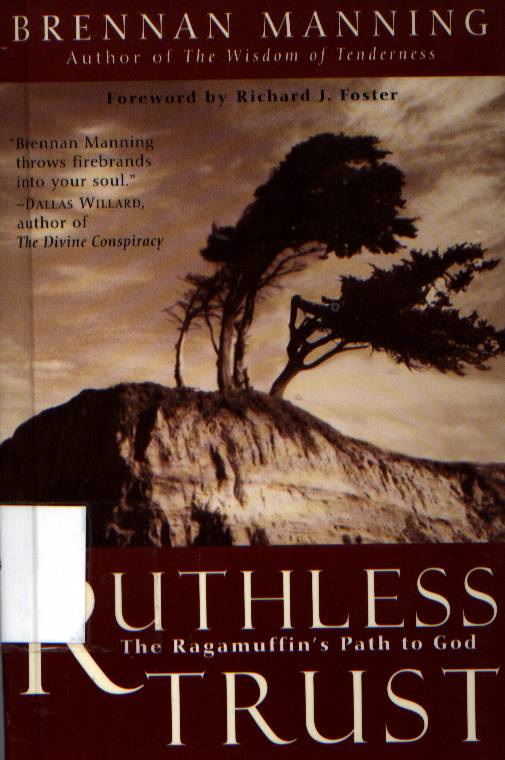 It may seem rather odd for a student of human nature, if you will (a term that
arguably best describes all real artists, I believe), that I seldom -- to be
honest, almost never, actually -- read nonfiction books directly discussing
psychology, theology, etc. In fact, the only exceptions that immediately
come to mind are the accompanying text to an introductory psychology course I
took in college and a (thankfully) shorter volume I once received as a Christmas
gift.
It may seem rather odd for a student of human nature, if you will (a term that
arguably best describes all real artists, I believe), that I seldom -- to be
honest, almost never, actually -- read nonfiction books directly discussing
psychology, theology, etc. In fact, the only exceptions that immediately
come to mind are the accompanying text to an introductory psychology course I
took in college and a (thankfully) shorter volume I once received as a Christmas
gift.
The fact of the matter is, I simply prefer the
challenge of figuring people (real or fictional) out for myself...attempting to
unravel their character traits, motivations -- what makes them "tick",
if you will, by studying the little details of their words and actions and, in
so doing, attempting to construct an accurate "big picture" of who
they are. And, because the goal of most fiction writers is to indeed
capture and reveal these little clues in their stories, through what they share
about their heroes, their villains, etc. -- and by virtue of the ways in which
they do so invariably sharing a great deal about the characters that are the
writers themselves -- I tend to find this manner of acquiring knowledge of human
nature more interesting, and in many cases more truthful, than being lectured to
based on the conclusions another has drawn from essentially the same
activity.
However, as the author of the book being reviewed here
had been the topic of some very interesting discussion among several of my
acquaintances, I decided to do a little checking on amazon.com to learn a bit
more about his work. After reading several excerpts there, I decided he
indeed seemed something of an exception to the nonfiction know-it-alls I'd
previously encountered and I went to the library in search of one of his
books...a search which led to the discovery of Ruthless Trust. And,
once I got my head into this volume later that evening, I found myself utterly
unable to put it down.
Far from merely reciting a lot of starchy inaccessible
theory, Manning instead speaks in practical, relatable terms of very weighty
spiritual concerns. Moreover, as a recovering alcoholic who left the
priesthood to marry, he also speaks from a vast and often difficult firsthand
experience of coming to terms with the person of God, the person of Brennan
Manning, and the gradual dawning of how to bridge the at times seemingly
uncrossable "great gulf fixed between". And, in so doing, he
reveals many of the common misconceptions many of us as humans are wont to fall
into that too often prevent us from achieving -- or, in fact, even attempting --
the same goal.
Covering such diverse topics as the role of
"artists, mystics, and clowns", "humble confidence" and
"the geography of nowhere" (the last of these interpreted as now/here)
as components in the ongoing human quest of knowing God, Manning offers far more
than a finished map based on any illusion of superior theoretical knowledge on
his own part. Rather, he concludes the book by asking "Where am I in
all this?", and immediately responding, "With you". And, in
so doing, he offers an invitation to join him on a challenging and rewarding
journey toward "our homeland, where eye has not seen, neither has ear
heard, nor has imagination conceived of the beauty that awaits us."
The
Tess Monaghan Mysteries (series)
by Laura Lippman
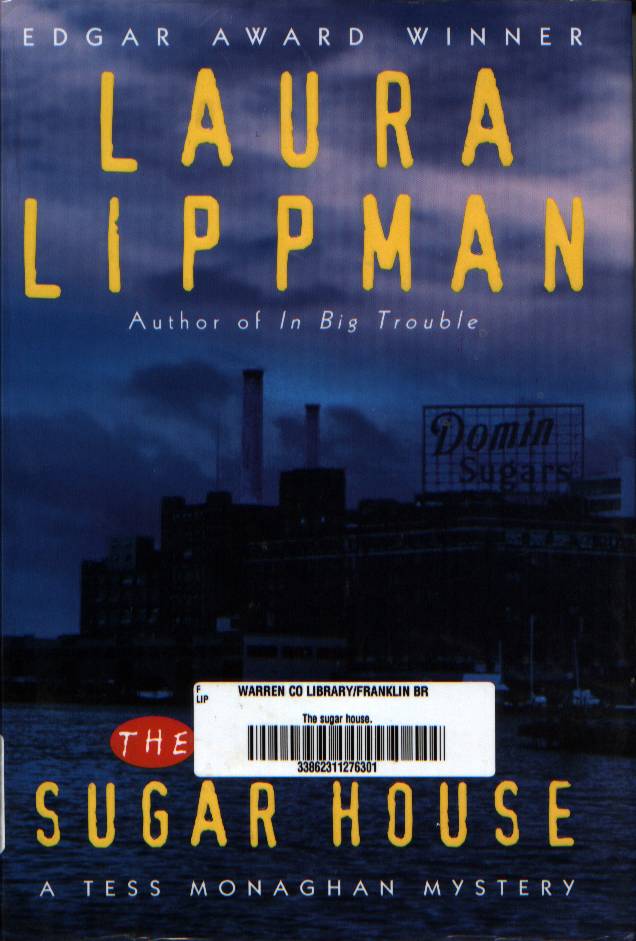
Last winter I read a
book entitled In A Strange City by an author with whom I was then
completely unfamiliar. By the time I'd finished it, however,
"her" city (Baltimore) and the characters to whom she'd introduced me
had become a place and people I felt I knew quite well and with whom I would
very much enjoy deepening my acquaintance. Moreover, although a
relatively light and enjoyable read, I appreciated Ms. Lippman's ability to keep
the wheels turning, so to speak, in an effort to stay one step ahead of the
sympathetic yet unsentimental, no-nonsense Tess in figuring out
"whodunit". And, to tell you the truth, I didn't. But, boy
did I have fun trying. So much fun, in fact, that I had to visit my local
library again to seek out another installment of the series (The Sugar House)
just to see if once I knew how she thought, how she spun her tales, if
perhaps they might become a bit more predictable, maybe even too similar in the
aspects of character they revealed, etc. to ever again provide anything close to
the joy I'd experienced at their discovery.
But again, I was pleasantly surprised to learn that
Tess (uh...I mean, Ms. Lippman -- see what I mean about her heroine becoming
real!) could still, well, surprise me...and engage me, puzzle me, win my
admiration, and once more make me want to visit her world as soon as time
permits...something I most highly encourage you to do as well.
Seven
Days To Petrograd Seven
Days To Petrograd by Tom Hyman
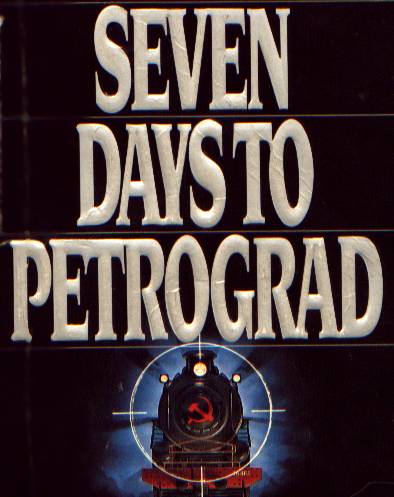
I picked this book up because it was written by an
instructor of mine (Tom Hyman), but thatís got nothing whatsoever to do with
why I couldnít put it down. Almost before I realized what was happening I
found myself transported to World War I era Europe and personally involved with
a myriad of characters defined by disparate cultural backgrounds and conflicting
loyalties. And, in the process I began to somewhat uncomfortably question my own
loyalties as the humanness and integrity of a certain German captain (who one
might easily say was merely born on the wrong side of the world) made me wish
for his success in almost equal measure to my wishes for the "heroís"
safety.
I wonít spoil the ending for you by telling you how
this conflict is resolved, but I will tell you that along the way to its
resolution lie countless unexpected twists and turns, and several
heart-pounding, hair-graying moments. And somehow in the midst of all the
adventure and excitement, Mr. Hyman manages to intertwine an amazingly tender
and enduring romance that creates -- and resolves -- plenty of conflict all its
own. Despite a few late passages that proved a bit too graphic for my
taste (if youíve read my review of Hannibal, you already know about my
less than steely constitution in regard to such matters) I thoroughly enjoyed
this book. Check it out and see if you donít as well.
Timequake
by Kurt Vonnegut
In the Winter 1999 issue of the Pearl Jam
"Ten Club" newsletter, Eddie Vedder wrote a little wrap-up of
significant moments he'd experienced that year, including the Seattle stop on Kurt Vonnegut's
latest book tour. In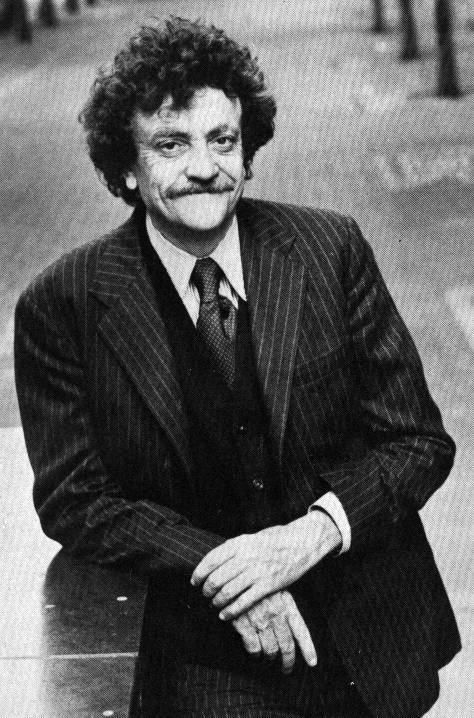 reference to this, he refers to Vonnegut as "one
of the few classic American novelists...Books like Cat's Cradle, God
Bless You, Mr. Rosewater, Player Piano...They've had as much
influence as any record I've ever owned." Naturally, with that kind of
glowing review I became curious (not to mention ashamed at my pitiful ignorance
as a Literature major!) and headed to my local library. Discovering
Timequake to be his newest work, I checked it out and eagerly devoured
it. And by the time I'd reached the end, I completely understood Eddie's
words, for Vonnegut displays an uncanny ability to entertain while tossing out
enough knowledge to fill an encyclopedia -- all the while communicating in an
easy conversational tone which is at once hilarious and moving. Among my
favorite of the experiential stories he weaves throughout the narrative is that
of a writer friend who shared his name with a famous author. Accustomed to
being mistaken for that author, his automatic response to proclamations that
someone had read his work was an assurance that they had confused him with
someone else. In the instance Vonnegut recalls, however, this response had
greatly disappointed a lady who approached his friend about a story she had
absolutely loved by someone of his name. In her reply to his usual (and by
this time somewhat annoyed) response, he learned that she had no idea regarding
the work of his famous counterpart. It was, in fact, a story of his
own which had been published in a magazine that had inspired her
admiration.
reference to this, he refers to Vonnegut as "one
of the few classic American novelists...Books like Cat's Cradle, God
Bless You, Mr. Rosewater, Player Piano...They've had as much
influence as any record I've ever owned." Naturally, with that kind of
glowing review I became curious (not to mention ashamed at my pitiful ignorance
as a Literature major!) and headed to my local library. Discovering
Timequake to be his newest work, I checked it out and eagerly devoured
it. And by the time I'd reached the end, I completely understood Eddie's
words, for Vonnegut displays an uncanny ability to entertain while tossing out
enough knowledge to fill an encyclopedia -- all the while communicating in an
easy conversational tone which is at once hilarious and moving. Among my
favorite of the experiential stories he weaves throughout the narrative is that
of a writer friend who shared his name with a famous author. Accustomed to
being mistaken for that author, his automatic response to proclamations that
someone had read his work was an assurance that they had confused him with
someone else. In the instance Vonnegut recalls, however, this response had
greatly disappointed a lady who approached his friend about a story she had
absolutely loved by someone of his name. In her reply to his usual (and by
this time somewhat annoyed) response, he learned that she had no idea regarding
the work of his famous counterpart. It was, in fact, a story of his
own which had been published in a magazine that had inspired her
admiration.
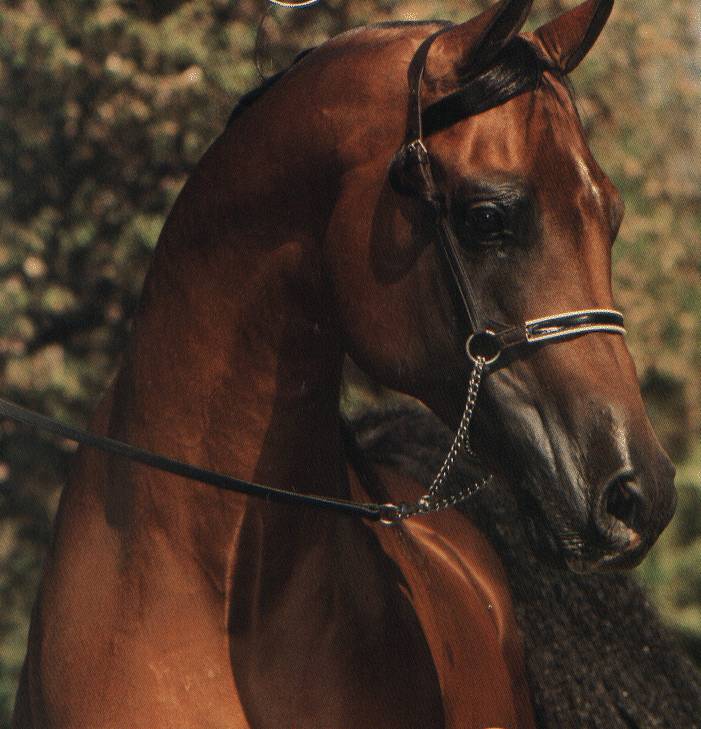 The Horse Whisperer
The Horse Whisperer
by Nicholas Evans
I read this book on the recommendation of a friend
who went to see the film version
and came
to work the next day loudly lamenting the director's choice to drastically
change the ending. Naturally, my curiosity was aroused and I
again headed to the library. And having then recently read a couple of less-than-thrilling thrillers, I was intensely grateful for the refreshing
change this work by Nicholas Evans offered. Not only is the book written
in such expressive prose that I must confess it brought me to tears at more than
one point, but because Of Mice and Men is forever near the top of my
favorites list in both its written and film versions (the 1992 Gary Sinise film
most specifically), I particularly appreciated the Steinbeck-like moral
dilemma in which the hero finds himself and felt similarly torn by whether
indeed the solution he chose represented his only real choice. Of
course, in later seeing the film of the same name, I quickly came to share my
friend's indignation as the incredibly lame ending completely stripped the story
of its deeply emotional core. Occasionally, I have seen films which
represented drastic improvements over the books on which they were based (Restoration
by Rose Tremain comes instantly to mind), but, believe me, The Horse
Whisperer isn't one of them. Forget the movie -- if you haven't done
so already, go read the book.
Henderson the Rain King
by Saul Bellow
Another of my favorite authors, in large part for
reasons similar to those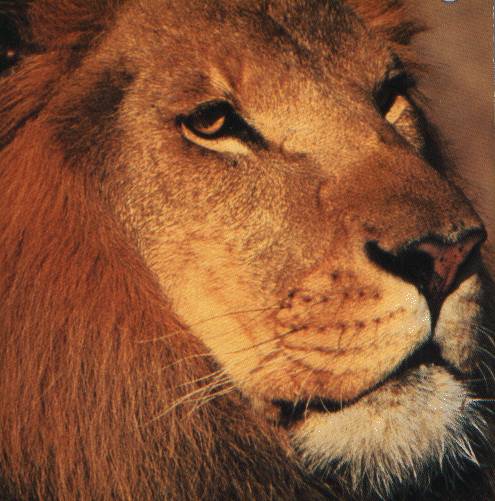 mentioned above regarding Kurt
Vonnegut, Saul Bellow in this book clearly
illustrates why in 1976 he was awarded the Nobel Prize for Literature. His breadth of knowledge and insights into human character
are dead-on accurate even when applied to the most fantastical situations --
such as those experienced by his hero, Eugene Henderson, as he traverses the
wilds of Africa and in the process begins to make sense of, even embrace, the
wilderness that is his own identity.
mentioned above regarding Kurt
Vonnegut, Saul Bellow in this book clearly
illustrates why in 1976 he was awarded the Nobel Prize for Literature. His breadth of knowledge and insights into human character
are dead-on accurate even when applied to the most fantastical situations --
such as those experienced by his hero, Eugene Henderson, as he traverses the
wilds of Africa and in the process begins to make sense of, even embrace, the
wilderness that is his own identity.
The Count of Monte Cristo by
Alexandre Dumas
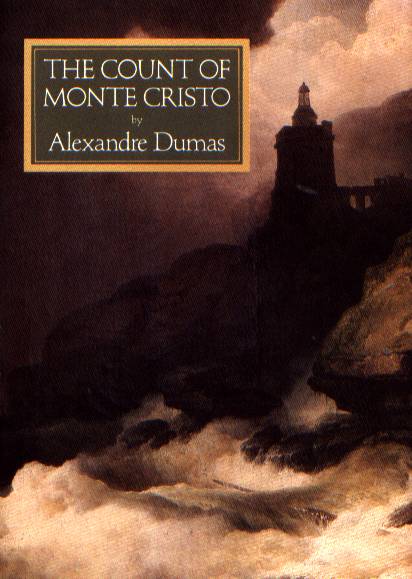 Although this author has
been criticized by "experts" for years
because so many of his plot twists and resolutions depend upon highly
implausible circumstances, it is at the same time arguable that therein lies his
charm. For, he reminds us that what our minds believe to be impossible may
yet well take place, and in so doing directs us down a path of choices and risks
that are worth taking no matter how unlikely may seem our chances of success in
such endeavors. In the process he also reminds us of the importance of
discipline, patience, hope and compassion as he paints a large array of
characters who prove to us love and innocence can be found living side by side
with greed and evil. What's more, he asserts it is our duty to embrace and preserve these most
excellent qualities, even while maneuvering minefields of justice and mercy
as we attempt to root out their baser counterparts.
Although this author has
been criticized by "experts" for years
because so many of his plot twists and resolutions depend upon highly
implausible circumstances, it is at the same time arguable that therein lies his
charm. For, he reminds us that what our minds believe to be impossible may
yet well take place, and in so doing directs us down a path of choices and risks
that are worth taking no matter how unlikely may seem our chances of success in
such endeavors. In the process he also reminds us of the importance of
discipline, patience, hope and compassion as he paints a large array of
characters who prove to us love and innocence can be found living side by side
with greed and evil. What's more, he asserts it is our duty to embrace and preserve these most
excellent qualities, even while maneuvering minefields of justice and mercy
as we attempt to root out their baser counterparts.
Indeed, The Count of Monte Cristo is a fantasy in many
ways, with its tales of hidden treasure, a handsome and gallant heroic central
figure, a bit of Romeo and Juliet inspired magic that turns out far more
positively than it did for Shakespeare's "star-crossed lovers", and
indeed justice for all. Yet it also manages to convey very real truths that
include all too haunting images of the suffering we are all capable of bringing
upon our fellow man by selfish or careless actions, the good we are likewise
able to bring about by awareness of our responsibility to merely give of what we
have to those we befriend and love, and above all that "until the day comes
when God will deign to reveal the future to man, all human wisdom is contained
in these words: Wait and hope!"
Needless to say,
I'm not about to disagree with Dumas on that point. Still, I would advise any of
you who haven't yet read this truly classic work to not wait any longer. I
doubt you'll ever find 500 pages pass more quickly or with greater
enjoyment. As you can probably tell, this book is a real favorite of
mine...and, that said, it's "hoped", of course, that it might likewise
become one of yours as well. But then, given the enduring popularity
that's resulted in various film versions of it and continued brisk sales nearly
two centuries after its creation, chances are it already is.
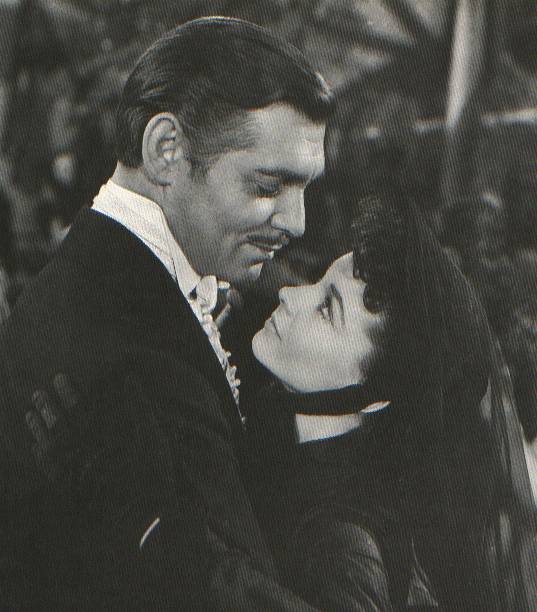 Gone With the Wind
Gone With the Wind
by Margaret Mitchell
Forget about flowery associations with some
romantic bygone era or propaganda asserting a benign aspect of slavery. My
love for literature begins with this book because of what it teaches about love
and maturity -- firstly, that true love is painful and second that anyone insistent upon
remaining immature enough to
believe getting his or her way at any and all
cost will actually result in some form of happiness is inexpressibly
deluded. I believe Gone With the Wind to be a lesson in what
constitutes genuine courage, the importance of facing reality and the need to
show one's love to those worthy of it before it's too late. Perhaps these
lessons seem old-hat to someone coming to this book later in life, but when I
first read it age 13 it seemed a treasure chest of wisdom and insight into human
relationships. And somehow in the intervening years, this memory has
persisted and for me the book itself has somehow never lost its charm.
A few other noteworthy selections...
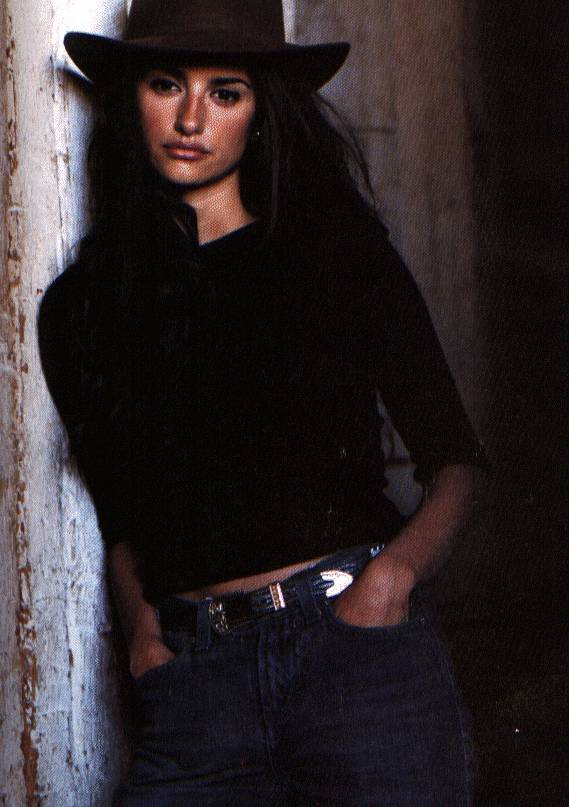
All the Pretty Horses
by Cormac McCarthy
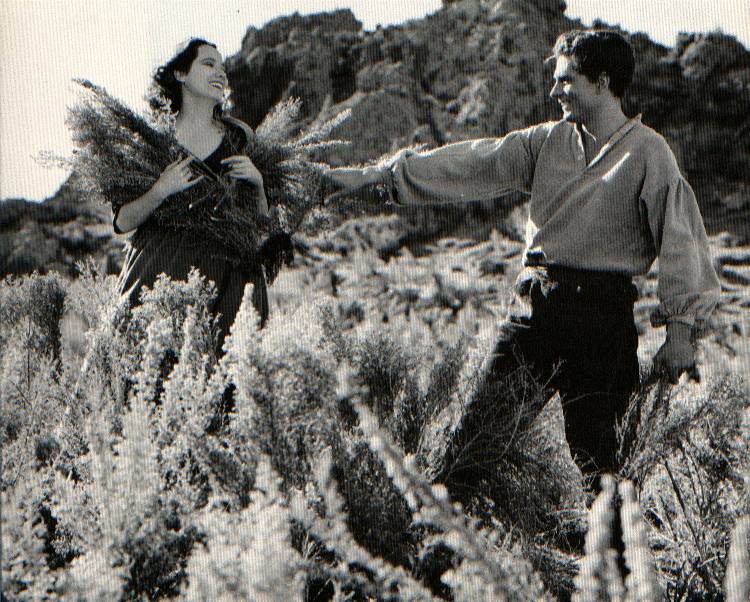
Wuthering Heights
by Emily Bronte
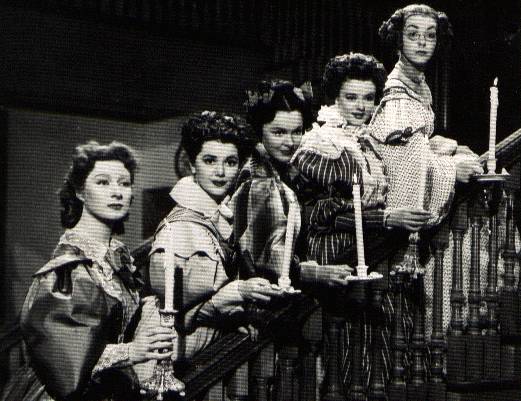
Pride and Prejudice
by Jane Austen
And, of course the foundation stones of Literature
(at least for me...)

The
Bible
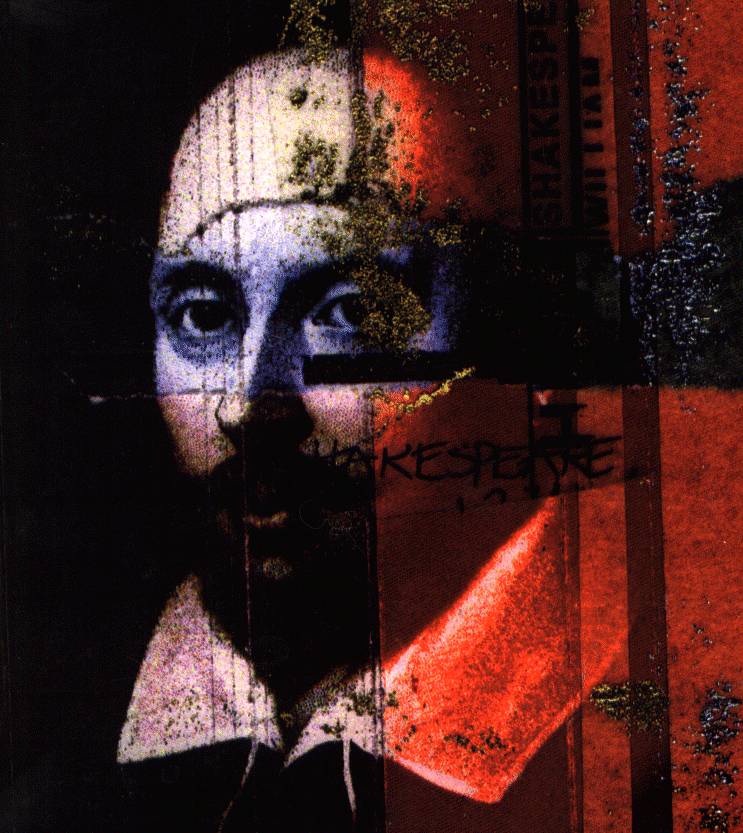
Shakespeare (collected works)
Back
to Top
Back to Mad Ravings On...
